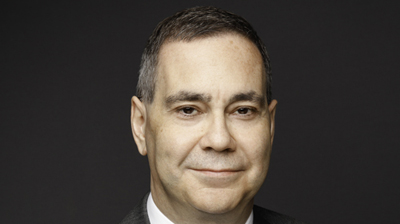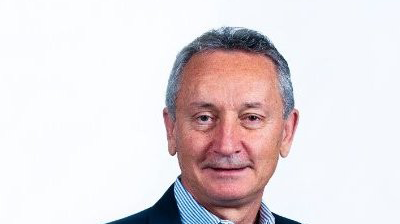
After an unprecedented year of economy-crippling global pandemics, Australian wildfires and tense Brexit negotiations the asset finance industry quietened down for the holiday period.
With the aim of guiding the industry the asset finance industry through one of the most challenging periods ever witnessed, the International Asset Finance Network (IAFN) created a series of virtual conferences under the name IAFN Online.
IAFN Online’s inaugural event - entitled ‘COVID-19 Impact on Auto & Equipment Finance Industries: Government Action and Industry Implications’ – took place on 5 May as the pandemic was in full swing. The session boasted a panel of expert speakers including:
- Richard Knubben, deputy director general of Leaseurope and Eurofinas;
- Jonathan Andrew, chief operating officer of PEAC Finance;
- Simon Goldie, head of asset finance at the FLA;
- Stephen Sklaroff, former director general at the FLA;
- Colin Fleischmann, group director of White Clarke Group.
Framed by a 97% fall in UK car sales in April compared to the same period in 2019, the conference drew on each speaker’s current experiences.

Drawing on his experiences of past crises, Sklaroff (pictured above) predicted two scenarios in motor finance, with one seeing huge pent-up demand, while another would see the market inhibited for months to come.
He said: “What companies are doing now – including how they are treating their customers and the balance between forbearance and market reality – will help to determine the winners and losers of this epidemic and how quickly the winners come off the blocks after the crisis. Those who get it wrong will create space for new entrants.”
During the session, the audience were polled to assess which key areas for improvement have been highlighted by the pandemic, with 33% of respondents opting for “more flexibility to vary contracts” and 20% selecting “new approaches to managing residual value risk.”
Operations and forbearance
In the second IAFN Online session, dealing with operations and forbearance in terms of the pandemic, delegates were met by a panel of industry specialists including:
- Adrian Dally, head of motor finance at the FLA;
- John Rees, former global head of sales and marketing at Sociètè Gènèrale Equipment Finance;
- Melanie Chell, partner and head of asset finance at Shoosmiths;
- Peter Landers, director of strategic partnerships at MotoNovo Finance;
- Rohan De Souza, global head of auto finance at Genpact;
- Simon Harris, partner at Avantalion Consulting Germany.
This session took place on 14 May, nearly two months into the first lockdown in the UK. As Sklaroff suggested, the industry was busying itself with the provision of forbearance to business customers and consumers alike, sparking the need for specific information on the situation.

Chell (pictured above) explained: “I am sensing a definite nervousness across the lender community. People don’t want to be on the wrong side of the FCA guidance, CONC rules or CCA requirements and that is driving reluctance to proceed with any business as usual-type decision-making. There are still large parts of your books that are not affected by COVID-19 guidance and we can continue as we usually would with those customers bearing in mind the risk factors we usually would.”

Rees (pictured above) added: “Companies need to identify the difference between a real need for cashflow among customers and bad businesses buying time. This requires a customer-centric focus and close relationships. The real core lenders have leveraged the depth of their relationships and continued to work through a challenging environment. The number of requests for deferrals has decreased or stopped in some countries, so attention is turning to helping companies recover.”
The COVID-19 legacy
The next two sessions were dedicated to “The COVID-19 Legacy”, covering topics such as emerging priorities for the European auto finance industry, and managing the auto & equipment finance credit squeeze.
Taking place from 26 May – 18 June, these sessions featured a variety of expert speakers including:
- Martin Muessener, vice-president of sales and marketing, Europe and Africa at Toyota Financial Services.
- Mike Randall, chief executive officer at Simply;
- Steve Swift, managing director of Kennet Equipment Leasing;
- Peter Cottle, head of automotive sector at GrowCap;
- Gavin Wraith-Carter, managing director of Hitachi Capital Business Finance.

Edward Peck (pictured above), chief executive officer of IAFN Online, said: “Even before the pandemic emerged, the industry was struggling to afford its future. With auto CO2 emissions remaining high, the industry was being forced by regulators and government to accelerate an expensive transition to electrification, with substantial and punishing fines if they failed to meet carbon dioxide emissions targets. COVID-19 has added an extra layer of challenges as car sales have dropped.”
With this in mind, Muessener joined the panel to discuss Toyota’s view on the future of car sales, stating that the manufacturer was “anticipating that the European market for passenger cars will be around 15.5-16 million, compared to initial plans of more than 20 million, equalling a 25% market decrease.”

Muessener (pictured above) also covered topics such as the concern over the future performance of residual values. He said: “We are anticipating a decrease in residual values for a certain period of time. After the global financial crisis 11 years ago, residual values dropped and after about two years they recovered strongly, and we anticipate the same across all markets and across all brands. A decade on from that crisis, our residual value management techniques have matured and there are many new approaches for mitigating issues, so I am confident that we will not have a big decrease, but a slight decrease.”
Martin Muessener offered a range of additional insights on this topic and more which can be viewed in the following link: https://assetfinanceinternational.com/index.php/auto-finance/auto-emea/auto-emea-articles/19405-martin-muessener-highlights-the-emerging-priorities-for-the-european-auto-finance-industry-in-latest-iafn-online-conference
FCA bans discretionary commission
Just over four months into the pandemic, on 6 August, major news hit the industry that the FCA were planning a ban on discretionary commission models in the motor finance market. As such, IAFN Online setup another virtual event to tackle the topic, with guest speakers including:
- Jo Davis, founder of Auxillias;
- Spencer Halil, director of Alphera Financial Services;
- Amar Rana, chief executive officer at CrediCar.

When asked about the possibility of ‘gaming the FCA’s ruling’, Halil (pictured above) responded: “One of the biggest changes in the policy statement from the consultation paper is that it’s really focused on outcomes rather than on models. So, the FCA has stressed that they’re looking at the outcome being a reduction of cost for the customer, and a removal of customer harm, and they’ve emphasised the fact that they’re going to be monitoring, auditing and reviewing what they lenders, firms and brokers do to deliver these outcomes. So, if anyone tries to game the system, they would be taking a significant risk.”
Read more about Spencer Halil’s comments here: https://assetfinanceinternational.com/index.php/auto-finance/auto-emea/auto-emea-articles/19635-fca-ban-on-motor-finance-discretionary-commission-models-leads-to-mass-uptake-of-risk-based-pricing-models
No such thing as a vulnerable customer
In a unique event designed to tackle the topic of changing customer behaviour, the IAFN Online team hosted another session entitled ‘Next is Now: How human behaviour is changing and what this means for the customers of financial services today’. The ensuing discussion included talks from:
- Joel Bailey, director at EY Seren;
- Maria Fafouti, senior service designer at EY Seren;
- Will Shaw, principal service designer at EY Seren (pictured below);
- Chris Tobey, global sales director of wholesale finance solutions at NETSOL Technologies.

For example, when questioned how the pandemic has affected the perception of vulnerable customers, Shaw explained: “There is no such thing as a vulnerable customer, there are only customers who are in vulnerable situations. So, it is simply not the case that vulnerability is in the essence of someone’s being and you can identify it and give them a different level of service. There are two slightly different variants - monetary vulnerability and financial vulnerability.
Monetary vulnerability is your ability to withstand the financial shock of an unexpected event, or your risk of falling into financial difficulty. Financial vulnerability is the ability to make decisions in your own best interests; the ability for you, as a consumer, to access the products and services that you need, that work for you, that help you to achieve the things that you want to achieve in your life. So, you could make a decision not in your best interest, while in a state of financial vulnerability that might lead to monetary vulnerability or detriment.”
In an effort to find out more on this topic, UK-publication Asset Finance International sat down with Maria Fafouti following her talk at the conference mentioned above to discuss vulnerable customer legislation and the future of risk assessment. This resulted in an in depth article available here: https://assetfinanceinternational.com/index.php/people/thought-leaders/thought-leaders/19855-behavioural-science-expert-highlights-vulnerable-customer-legislation-and-the-future-of-risk-assessment
The post-COVID world
The latest series of virtual conferences covered topics predominantly focused on the future of the asset finance industry, including topics such as strategies for sustainable growth after COVID-19, and how to succeed in a customer-focused, environmentally sensitive, data-driven world.

Speaking on this topic, Durston (pictured above) said: “What the pandemic has done is accelerated what was in play in the first place. We see our retailers adapting through click and collect and deliveries. I think they’ve got a big role to play, going forward, whether it is offline or online. But I suspect it will be a mixture of both. Online is here to stay as it is about flexibility for the customer.”
Read more about this here: https://assetfinanceinternational.com/index.php/technology/technology-archive/technology-articles/19870-how-to-succeed-in-a-post-pandemic-asset-finance-market






